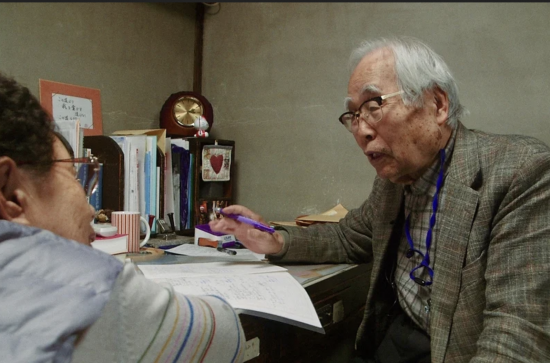
‘Zero’ by Director Kazuhiro Soda
About the film: Dr. Masatomo Yamamoto, a psychiatrist and the protagonist of the award-winning film “Mental” (Berlinale 2009, Kazuhiro Soda), is a pioneer in the movement to unlock the doors of mental hospitals in Japan in the 1960s. His long career spanning over five decades has been devoted to community-based mental healthcare, which puts the needs of the patients above everything else.
At the age of 82, Dr. Yamamoto is suddenly retiring from the clinical field, causing a lot of anxiety for many of his patients who have been relying on him as their lifeline for many years. He tries to spend his time to care for his wife Yoshiko, who has been the biggest supporter of his work and career. In early spring, Dr. Yamamoto and Yoshiko embark on a new life, facing challenges they never faced before.
About the Director: SODA Kazuhiro is an award-winning Japanese independent director, screenwriter, cinematographer, producer, author.
Born in Ashikaga, Tochigi, Japan in 1970, he studied Religion at Tokyo University and completed a degree in Film Studies at the School of Visual Arts in New York. He spent many years in New York as correspondent producing documentaries for NHK, the biggest national broadcaster in his native Japan, before directing his first ‘Observational Film’, CAMPAIGN (2007) which follows the election campaign of an old schoolmate, Kazuhiko Yamauchi, a political newcomer running for the local office for the Liberal Democratic Party (LDP). CAMPAIGN won the Peabody Award for Best Documentary.
Kazuhiro Soda practices an observational method of documentary filmmaking based on his own 'Ten Commandments' which prohibits him from doing pre-shoot research or writing a synopsis before filming. He imposes these rules on himself in order to minimise preconceptions and to make unexpected discoveries while filming and editing, they are:
1. No research.
2. No meetings with subjects.
3. No scripts.
4. Roll the camera yourself.
5. Shoot for as long as possible.
6. Cover small areas deeply.
7. Do not set up a theme or goal before editing.
8. No narration, super-imposed titles, or music.
9. Use long takes.
10. Pay for the production yourself.
The film might be of interest to those in media studies, anthropology, health studies, psychology, Asian studies, and sociology.
Any queries or questions can be directed to: [email protected]
